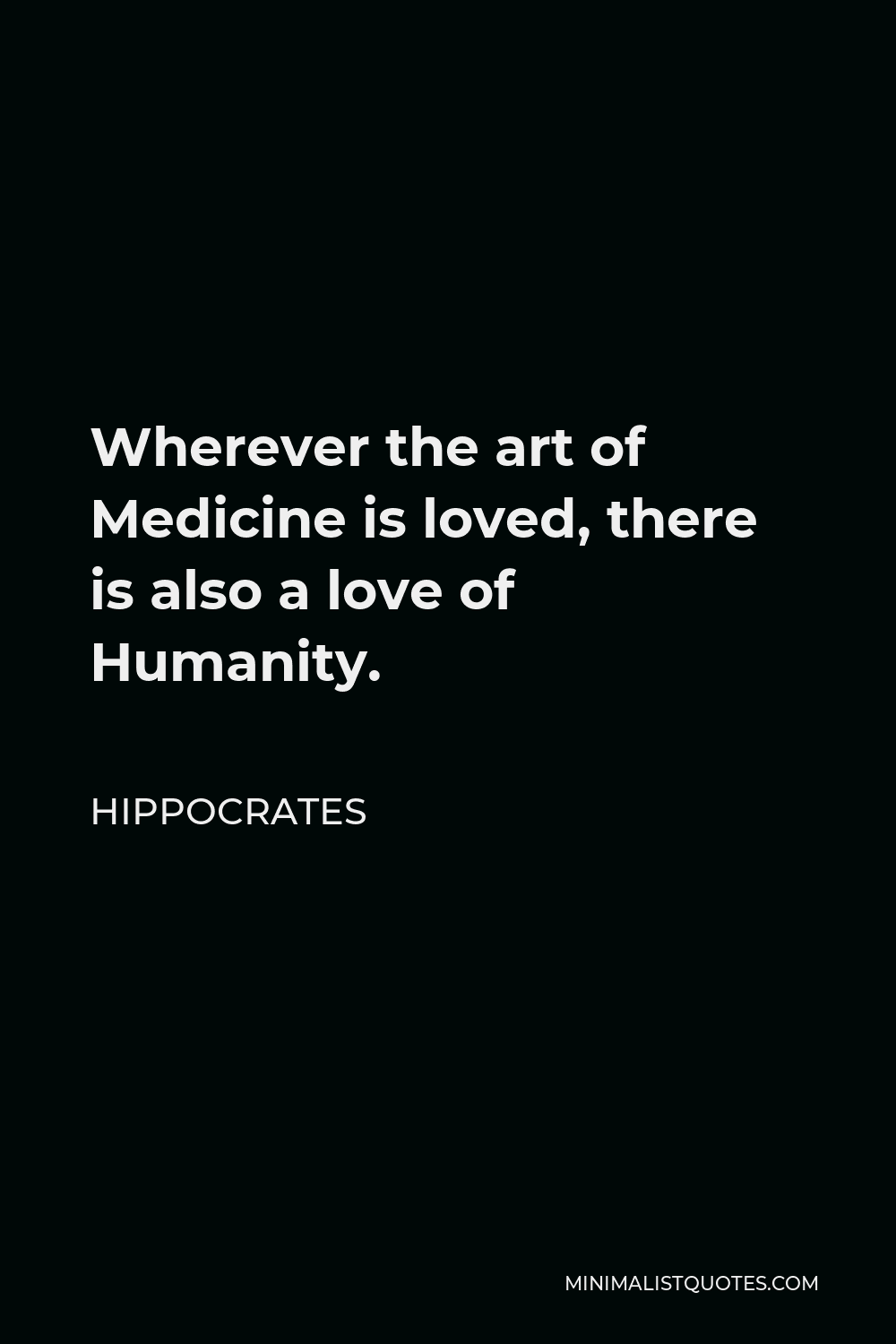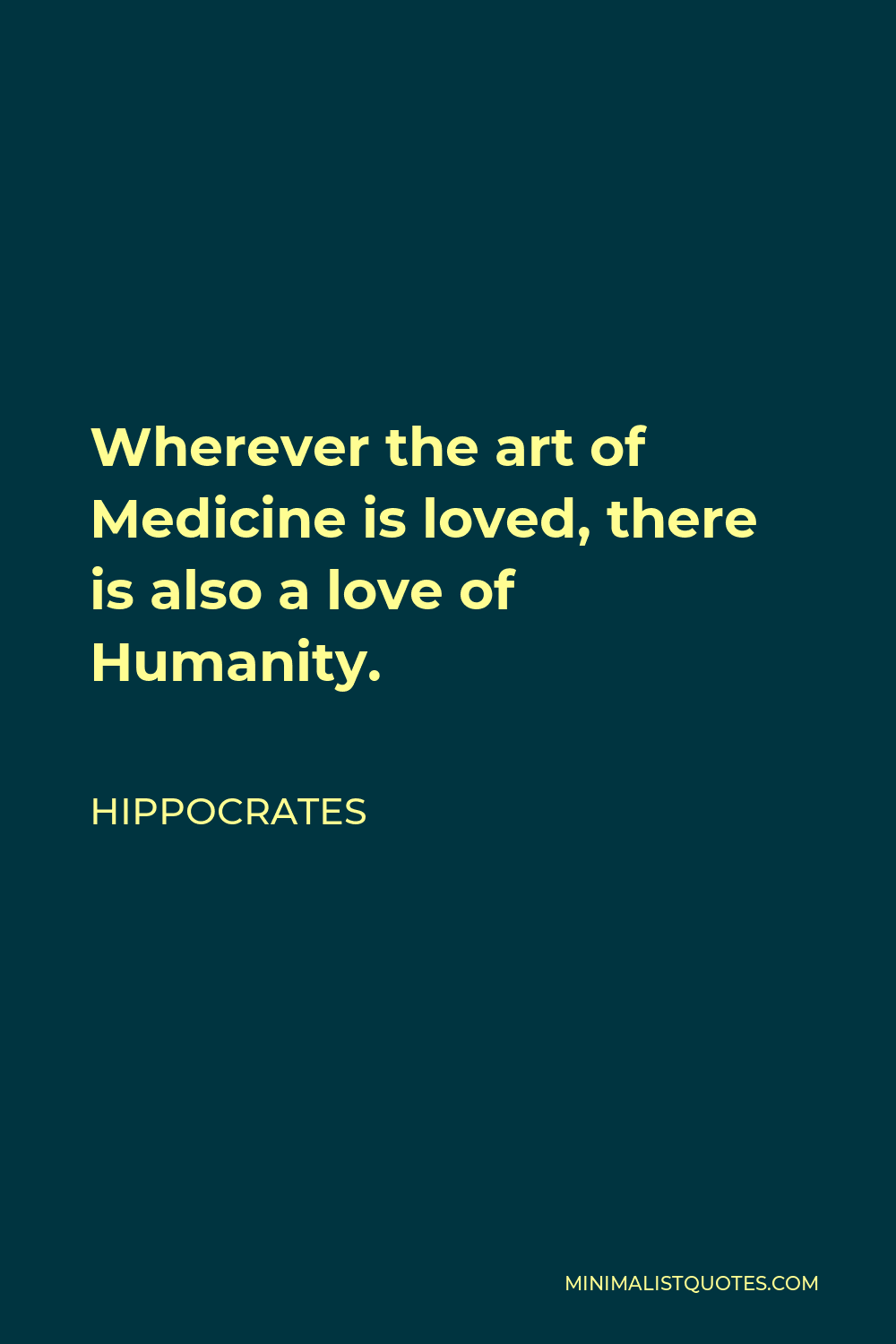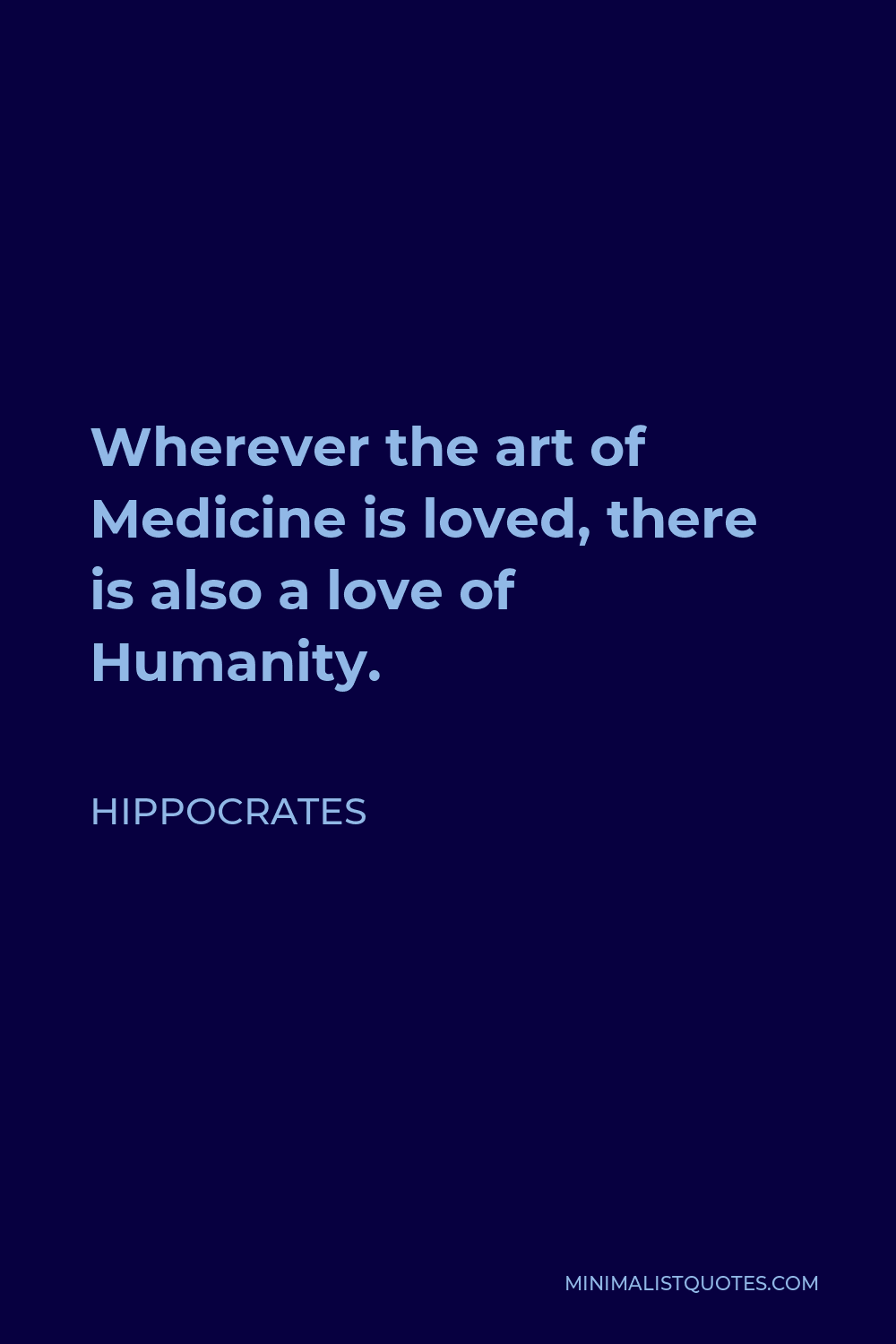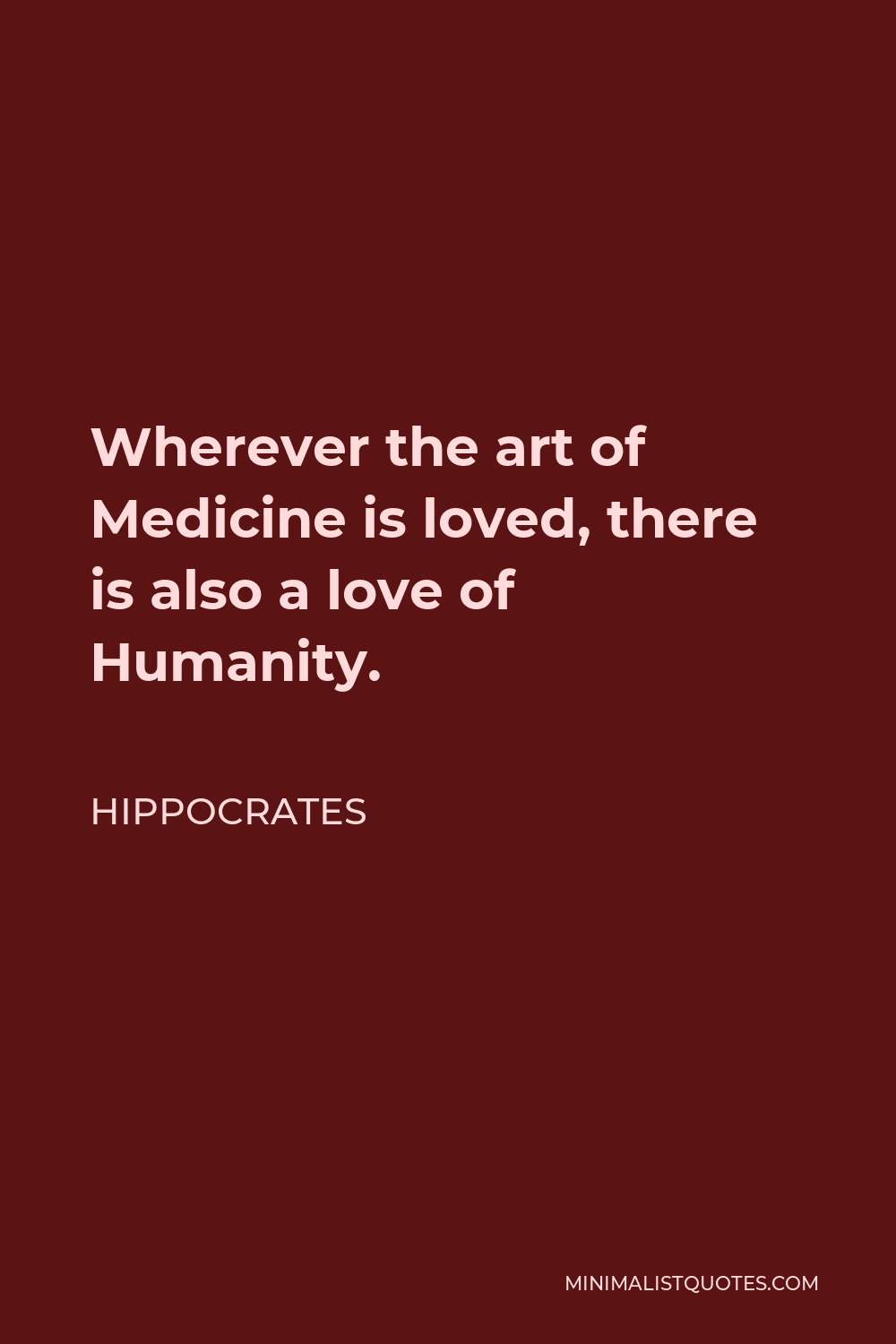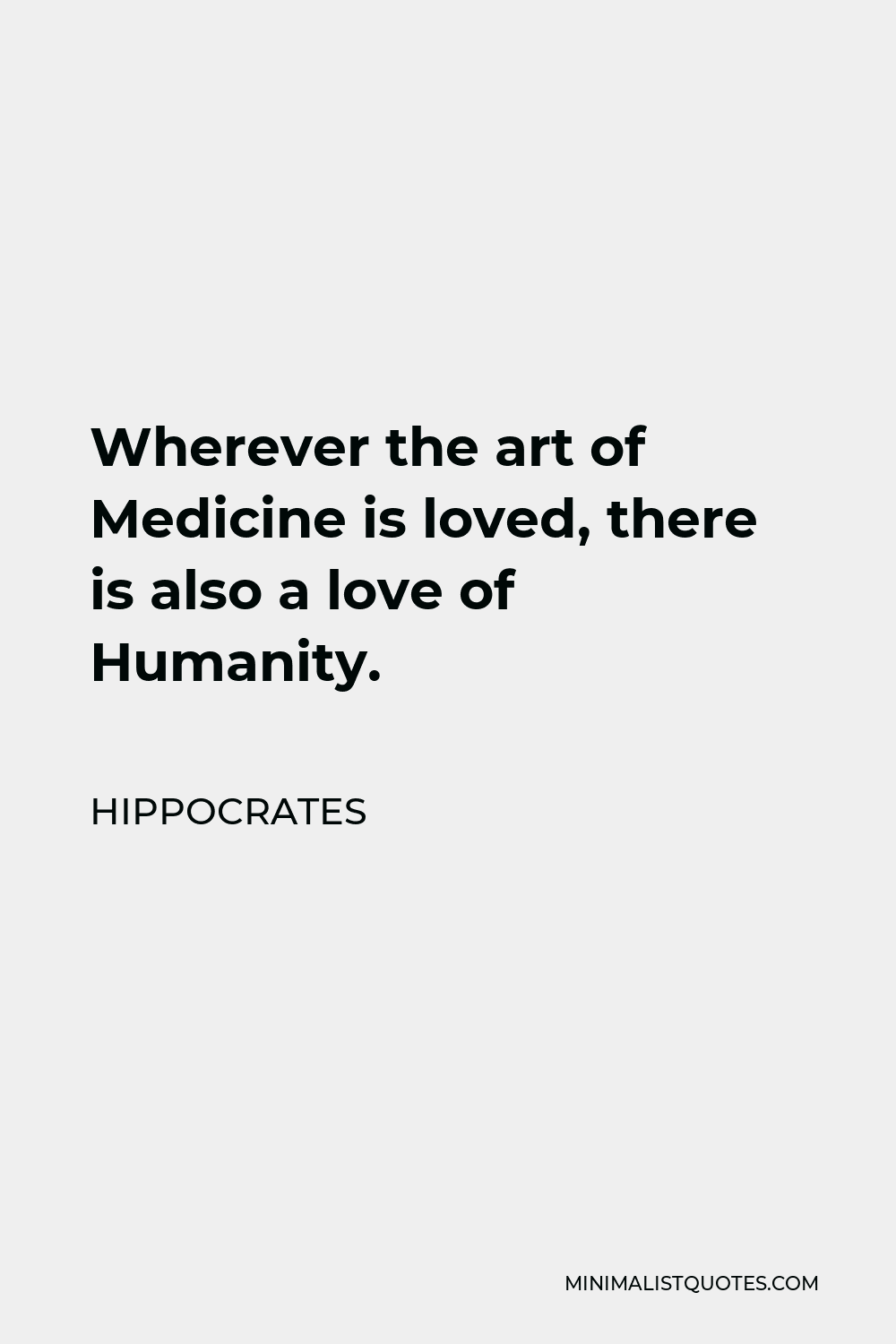Look to the seasons when choosing your cures
HIPPOCRATESWherever the art of Medicine is loved, there is also a love of Humanity.
More Hippocrates Quotes
-





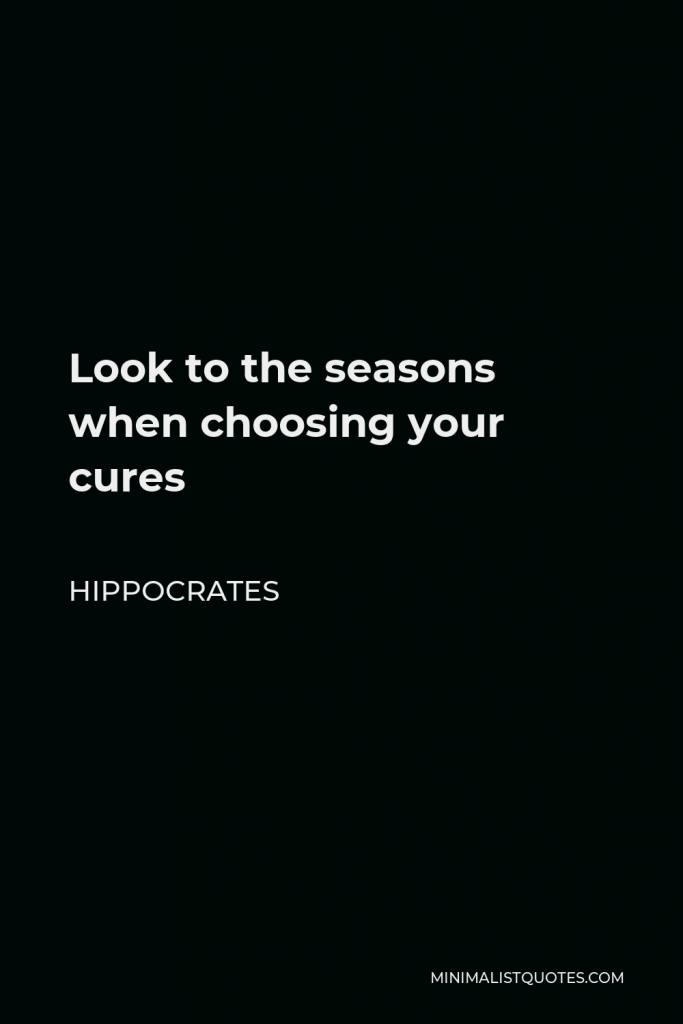

-





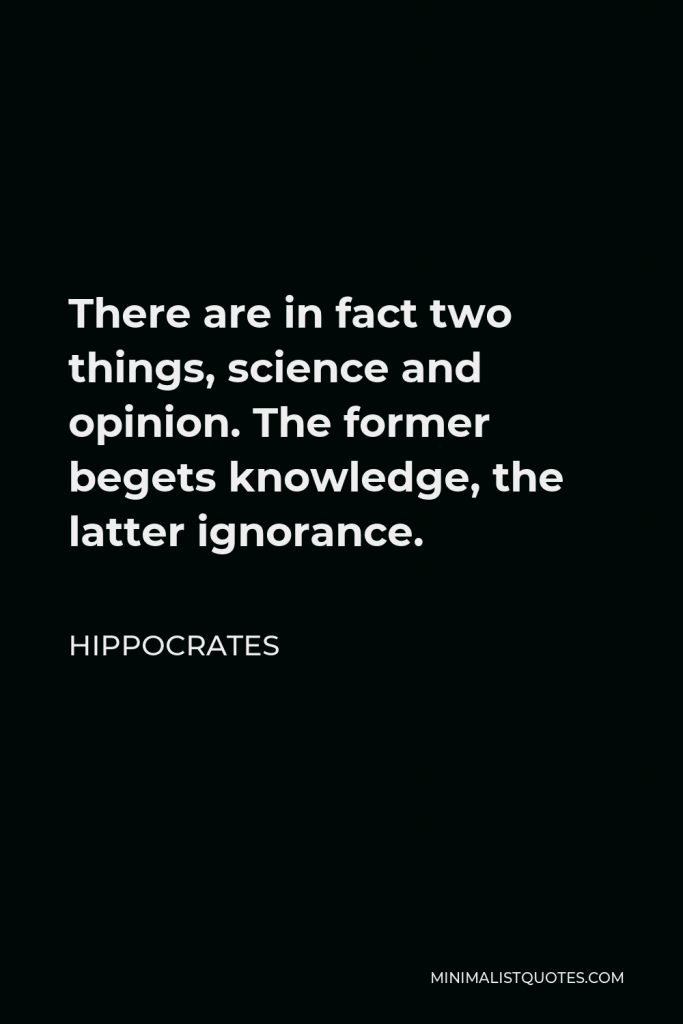

There are in fact two things, science and opinion. The former begets knowledge, the latter ignorance.
HIPPOCRATES -







Physicians are many in title but very few in reality.
HIPPOCRATES -





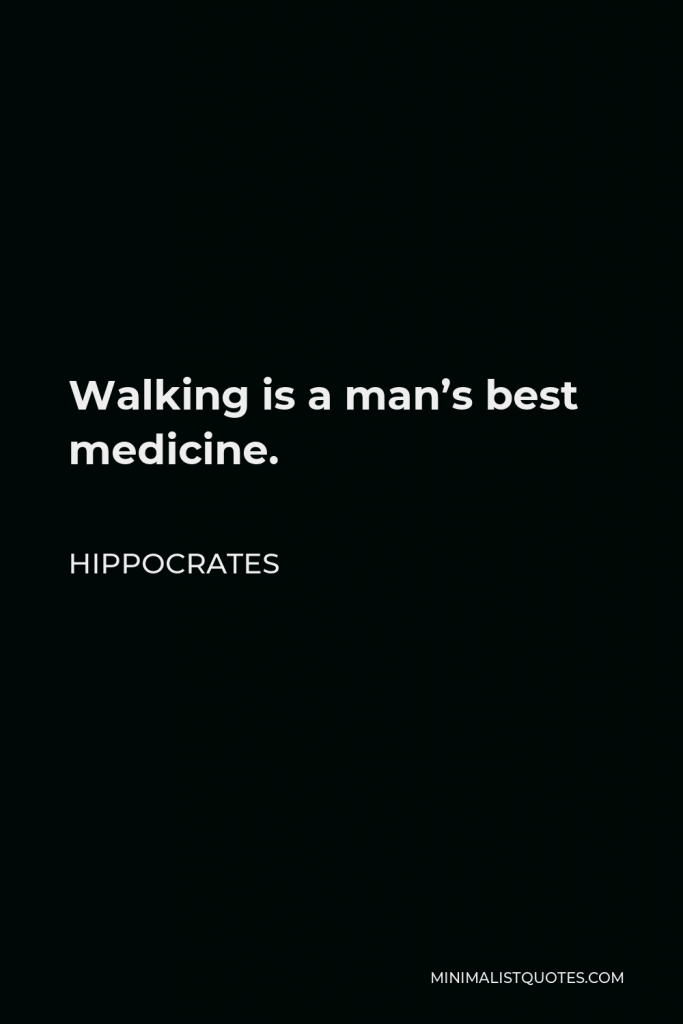

Walking is a man’s best medicine.
HIPPOCRATES -





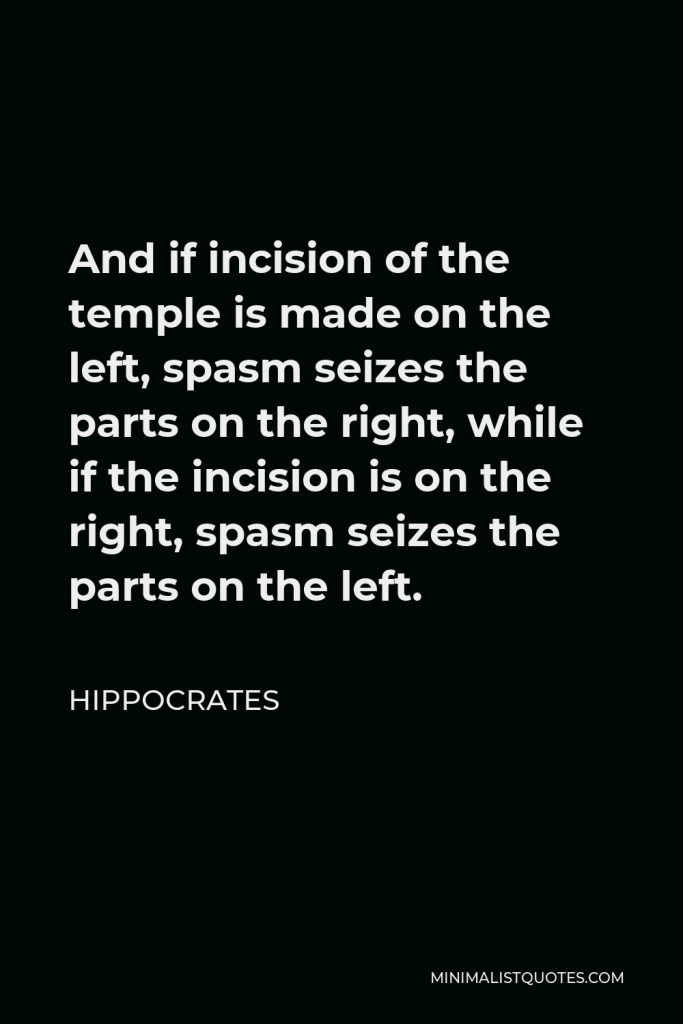

And if incision of the temple is made on the left, spasm seizes the parts on the right, while if the incision is on the right, spasm seizes the parts on the left.
HIPPOCRATES -







Leave your drugs in the chemist’s pot if you can heal the patient with food.
HIPPOCRATES -







To do nothing is sometimes a good remedy.
HIPPOCRATES -





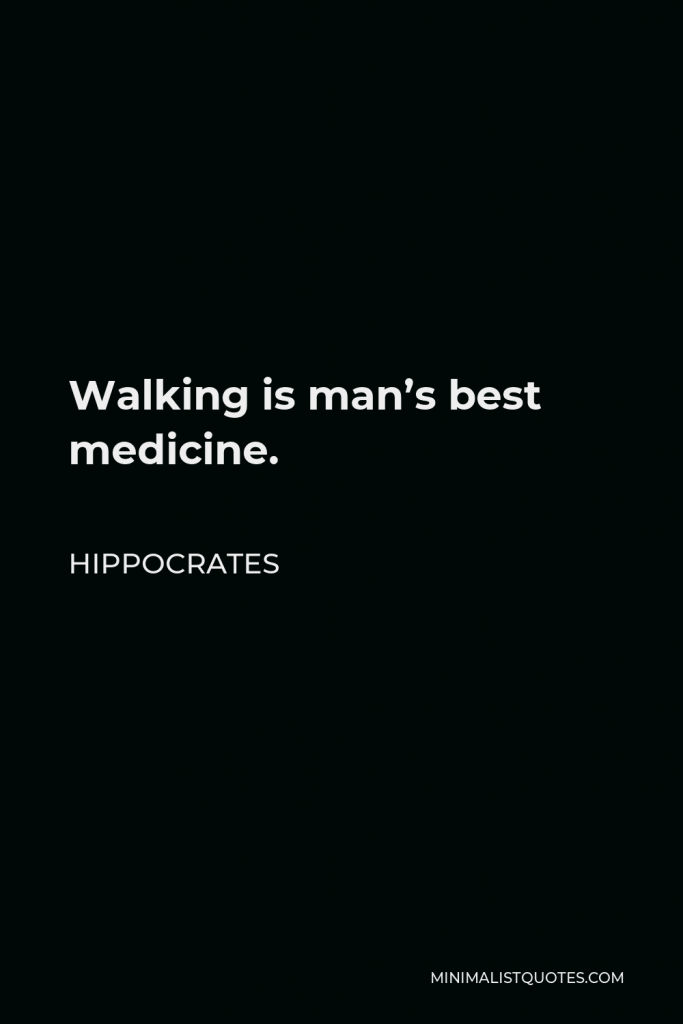

Walking is man’s best medicine.
HIPPOCRATES -







The natural force within each of us is that greatest healer of all.
HIPPOCRATES -





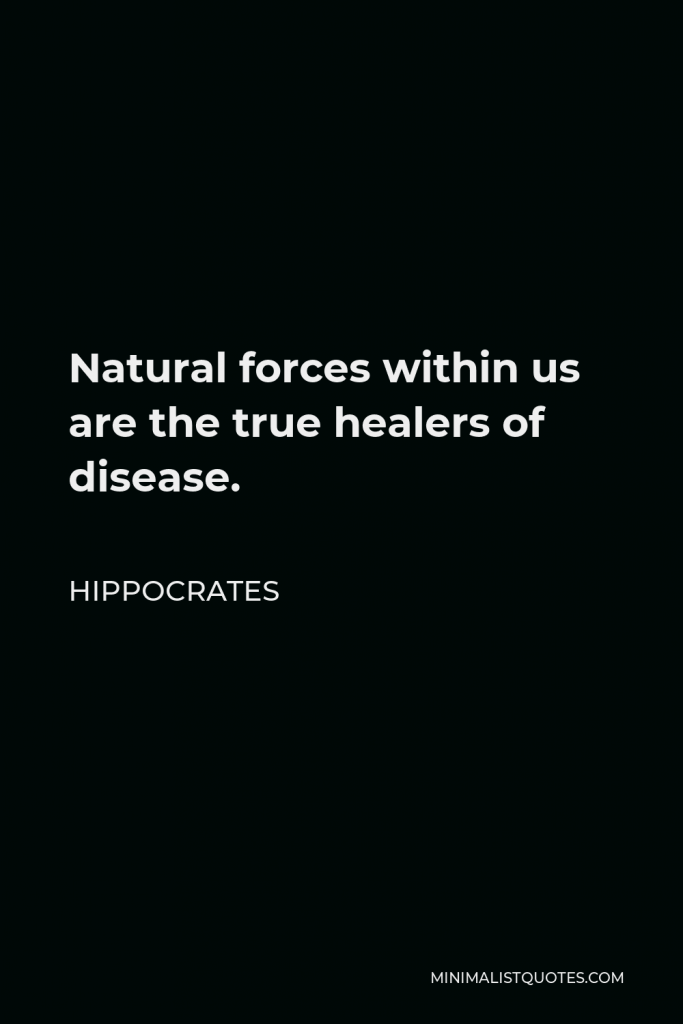

Natural forces within us are the true healers of disease.
HIPPOCRATES -







In all abundance there is lack.
HIPPOCRATES -





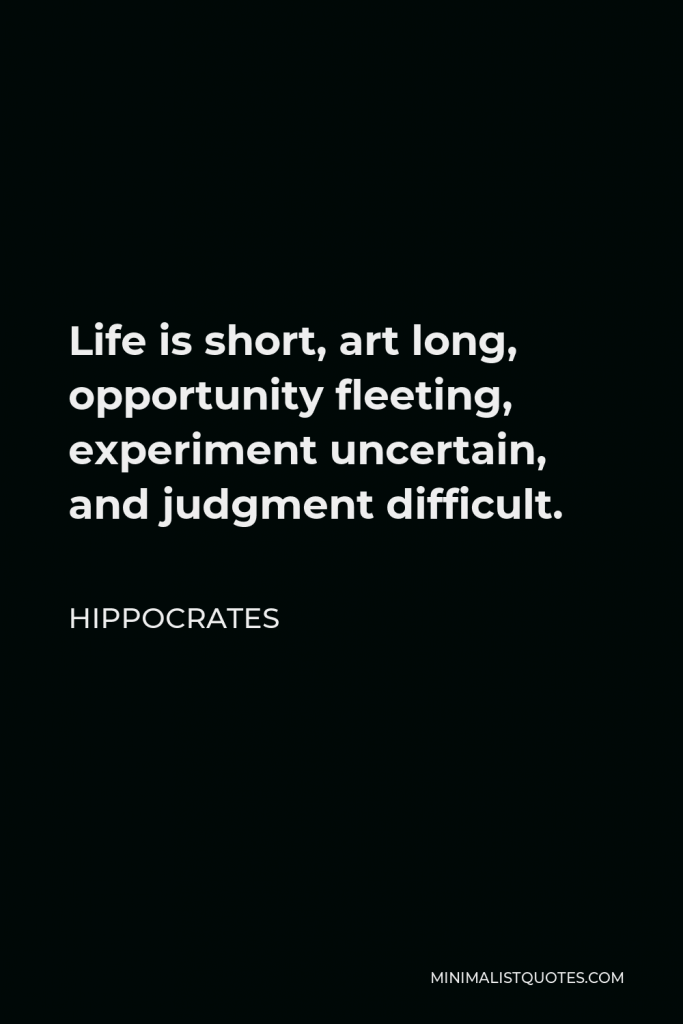

Life is short, art long, opportunity fleeting, experiment uncertain, and judgment difficult.
HIPPOCRATES -







Just as food causes chronic disease, it can be the most powerful cure
HIPPOCRATES -







Whenever a doctor cannot do good, he must be kept from doing harm.
HIPPOCRATES -





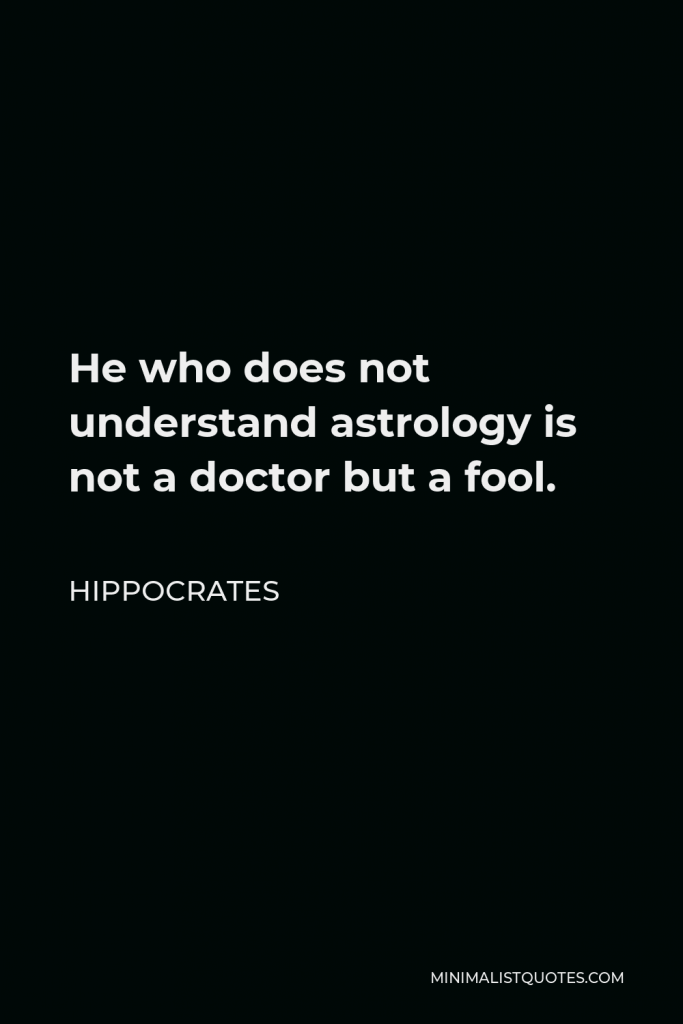

He who does not understand astrology is not a doctor but a fool.
HIPPOCRATES -





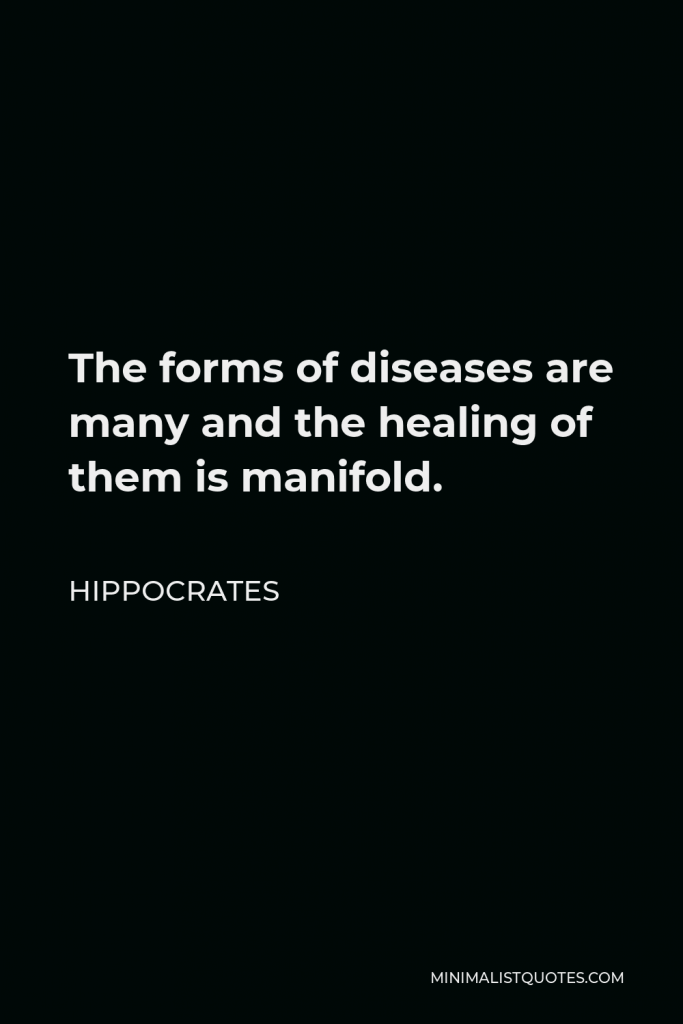

The forms of diseases are many and the healing of them is manifold.
HIPPOCRATES
